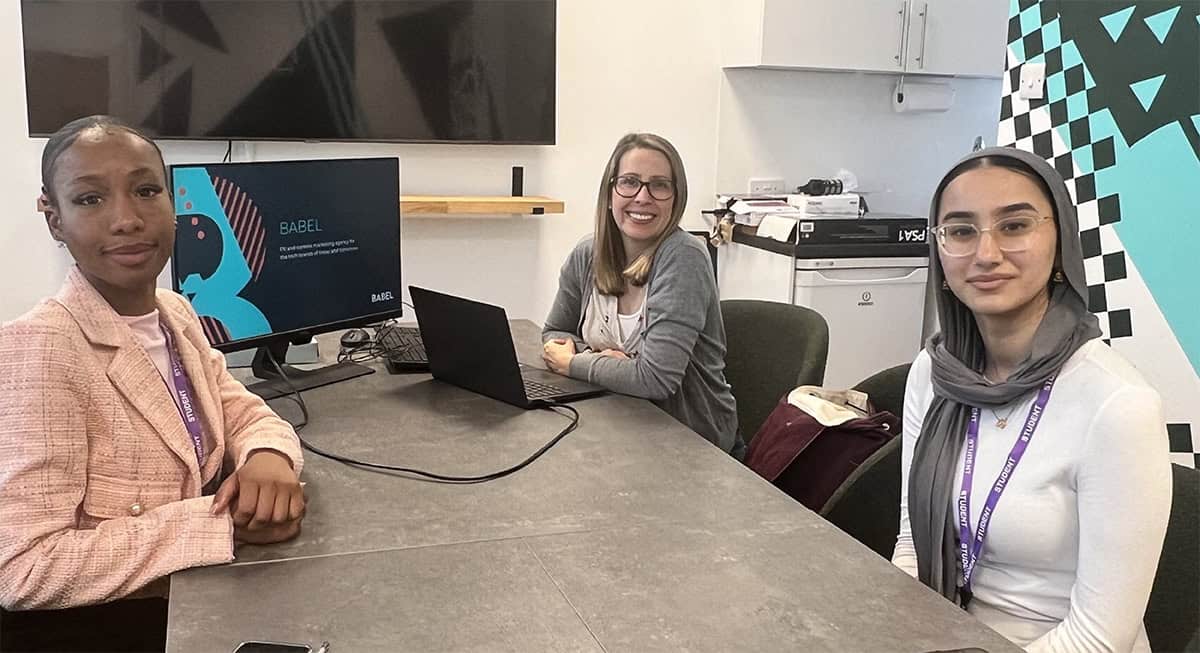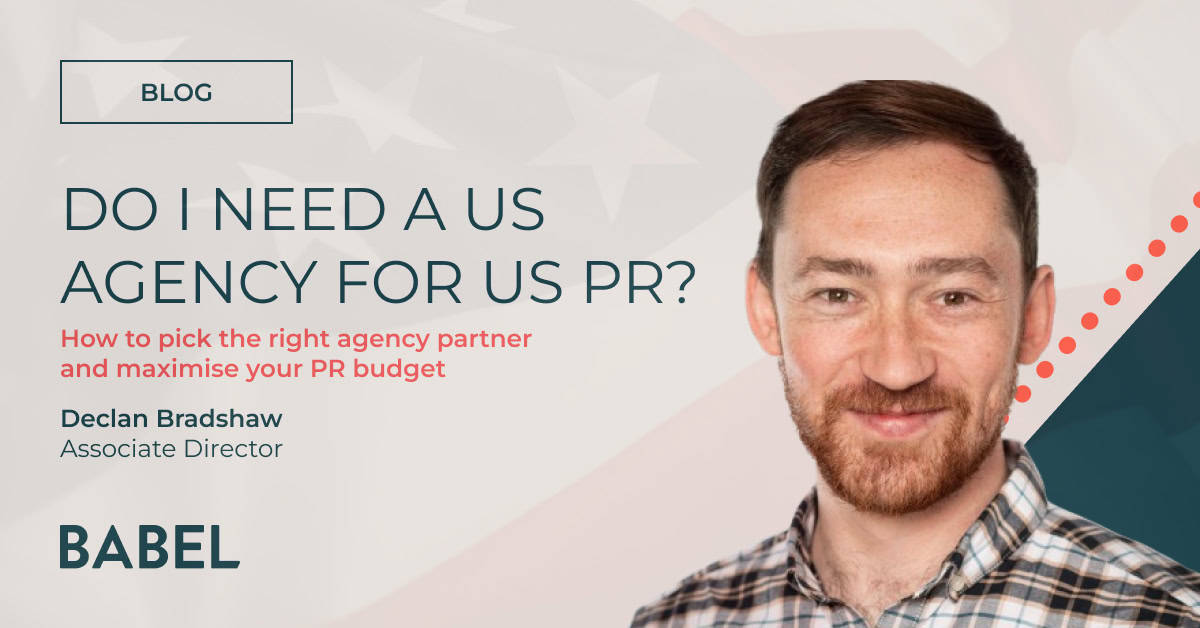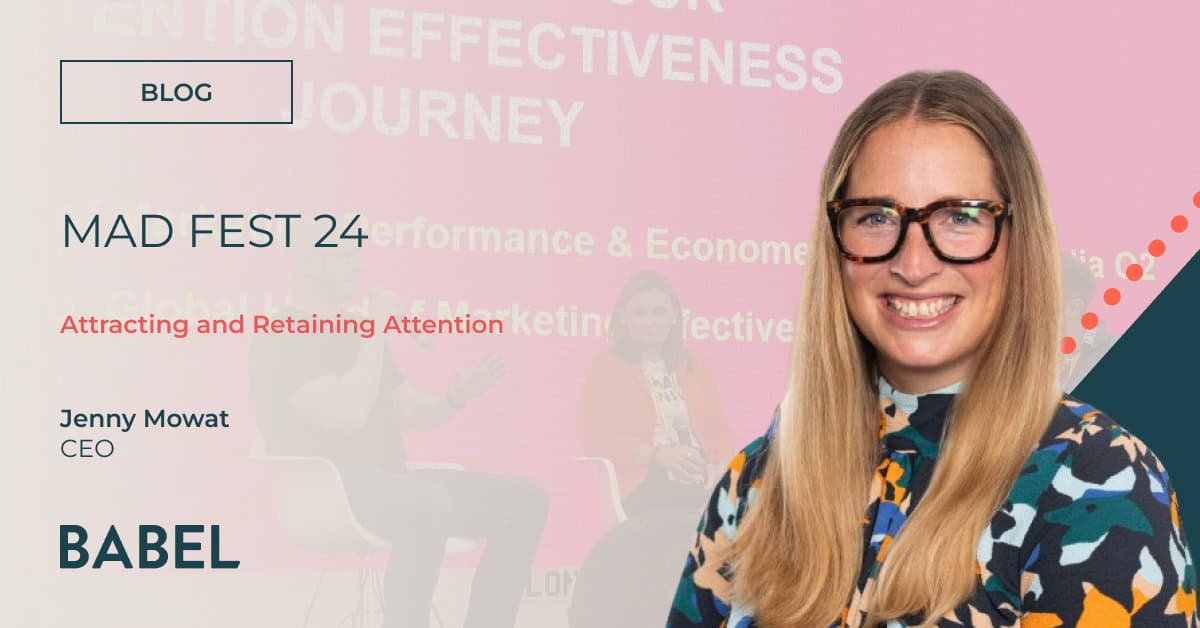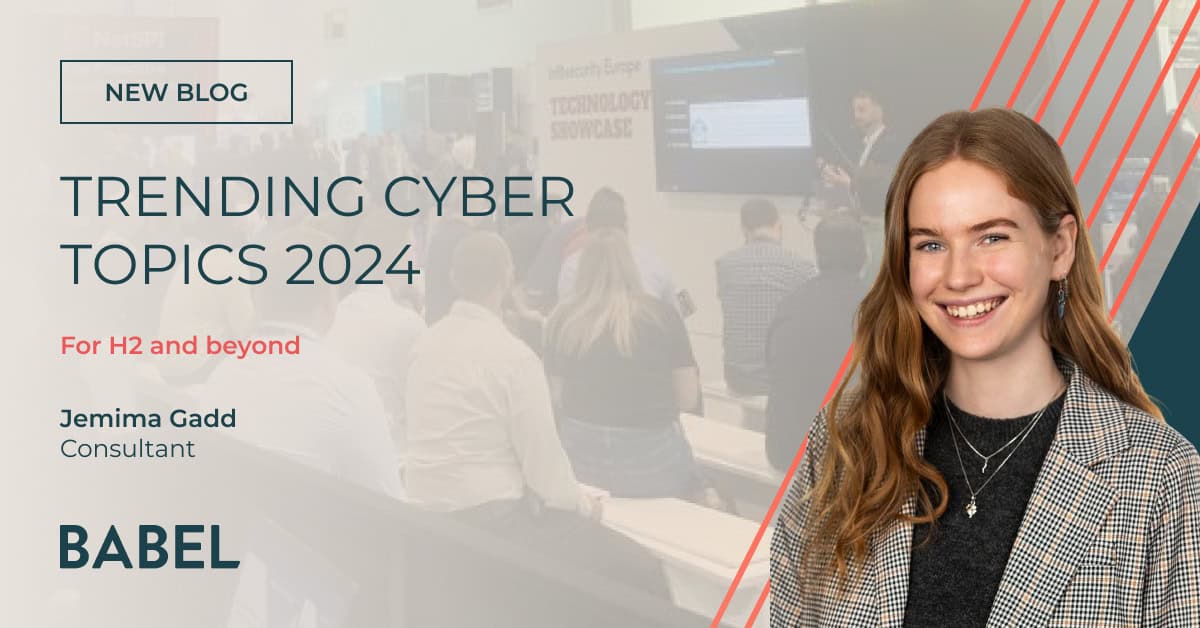
Babel Insights: Analyst Q&A with Teresa Cottam, Chief Analyst, Omnisperience
Here at Babel we really cherish the relationships we build, not only with our clients and service providers, and the media, but also analysts – key influencers in the world of business.
Omnisperience is one such analyst house, providing expert advice and insights on the telecoms market. Offering a wide range of services to EMEA B2B service providers and the vendors supplying them or partnering with them, Omnisperience channels its expertise through research, whitepapers, datasheets, briefings, one-to-one advice, and a monthly newsletter and podzine.
Omnisperience was founded by Teresa Cottam in the spring of 2017 as a rebranding of established telecoms analysts Telesperience. Teresa is a well-respected analyst covering the convergent telecoms markets, focusing particularly on B2B telecoms, customer experience and pricing, bundling, and billing. She began her career as the Managing Editor of Ovum, followed by a stint heading up research and publications at the boutique consulting and analyst house Chorleywood Consulting (acquired by Informa) before working as an Associate Principal Analyst for Analysys Mason.
We are in a privileged position to know Teresa, and to be able to put some questions to her, to gain valuable insight into what she is looking for from our clients, from an analyst perspective.
Teresa, thank you very much for taking the time to answer a few of our questions!
To start us off, may we have a little bit of background about you…
- Why did you want to become an analyst?
I fell into being an analyst almost by accident. I had been working as a management consultant and had no real concept of what an industry analyst was when I replied to an Ovum advert in 1995. I almost fell off my chair when Ovum’s Eirwen Nichols told me that they sold their reports for thousands of pounds! What I brought to the role though was a broad understanding of technology, particularly mobile technology, as well as of a number of vertical markets, the ability to explain technology in a less technical and more approachable way, a lot of patience, and a willingness to learn. Jules Hewitt, who was the MD at the time, bumped into me in the lift and said, “are you the one who’s going to improve our writing then?” That seemed like a big ask!
Ovum was an amazing training ground in those days. I was privileged to work with some incredible analysts in the early days of the analyst industry. But it was very different back then. For a start we produced in-depth 400+ page reports. Who would read those today? I remember one of our authors writing a 40-page profile of Microsoft once and us all shaking our heads. It was brilliant but far too long. In her defence, in those days the internet was still in its infancy and information was much harder to come by. So in-depth writing was often one of the few ways our clients had to find out key information. Our job has changed massively in the intervening 25 years. Now we help people navigate what is important in a sea of competing points of view, data, and so-called insight.
What’s kept me as an industry analyst all these years is that I love learning new things, I like being creative, I get to be a professional cynic, and I’ve worked with some really lovely people. I never get bored of my job.
- What led to you founding Omnisperience?
Omnisperience is essentially a rebranding of Telesperience, which happened because over the last 15 years telecoms itself has changed a lot. The idea behind Omnisperience is that today the emphasis in our industry is all about the experience, and we wanted to move away from the ‘tele’ part because we are now in the digital era.
I suppose your real question is why did I ‘found’ my own company. I did that because I wanted the freedom to write about things that interested me and not be constrained by the analytical frameworks of the big analyst houses. In my opinion a lot of the interesting things come from the gaps the frameworks don’t cover. Freedom of analysis became a big thing to me because as the industry matured, the independence that firms like Ovum was valued so highly for in the early days began to be threatened both overtly and covertly.
Inevitably big analyst houses rely on revenue from big companies and big vendors and that can make it challenging for them. Analysts in these firms may work very hard to be fair and balanced but it’s more about what they can’t say or don’t say, rather than what they do say. The independent analyst sector provides an antidote to this and many of the best and most experienced analysts end up working for themselves or band together into small firms because they don’t want to be in a corporate environment and the constraints that brings.
- And what is your favourite thing about your job?
People and ideas. Although my job is ostensibly about technology, it is really about people and ideas. People are the source of innovation and the barrier to adoption. I love helping them understand what is important and why, inspiring them, challenging their thinking, refreshing their ideas. I love that I am always learning, and I try to remain humble – always ready to learn new things, move on and not stay wedded to outmoded concepts and ideas. That is a real risk for analysts because we build our reputation on really understanding something – being the expert – and that can bring with it a tendency to become stuck in a mode of thinking. To stay relevant, we have to constantly reinvent ourselves, think outside the box and respond to the needs of the evolving market.
When we are reaching out to you…
- What do you like to hear from our clients about?
I’m always happy to hear from companies that have a great story to tell me. How they make something better, how they solve problems and how they are reshaping the market. That’s all bread and butter to me. I suppose what really makes me sit up though is when someone spots a way of transforming the experience provided by telecoms service providers or a lucrative new way for them to make money. My focus is really on the telecoms industry as a business. How we help service providers become better as a business, including the ways they can increase their revenues and serve their customers better.
- How do you use the information you get from our clients?
Two ways.
Overtly I publish articles about companies active in the market, I interview them for the podzine, talk about them in conferences. This extends to partnering with some of these companies which sponsor our free-to-air thought leadership and research.
The bit that’s often overlooked though is that these conversations inform and influence the direction of my thinking, and less obviously I have frequent conversations with senior managers who are implementing business strategy or looking to buy technology. I help put partnerships together, advise on M&A strategy and investment, and influence sales. Many sales in our industry start out informally with the question – ‘do you know someone who does X?’ Often these people are looking for disruptors and want to go beyond the limited number of vendors featuring in high profile reports. I also build new markets – defining new categories and why they’re important and effectively providing a platform that individual vendors can then market on to explain how they’re different and what their USP is.
- How do you prefer to be pitched to – by email, phone, or social media?
I get requests on LinkedIn, Tweets to connect with me, and emails with introductions and pitches. I meet people at conferences (f2f in the old days). I am not so keen on phone calls as an initial contact, but once I know you then phone calls or Teams/Zoom can be the best way forward. I prefer a WhatsApp as it is less intrusive than a phone call (but, for goodness sake remember to tell me who you are when you text or WhatsApp me! You have no idea how many texts from unknown numbers I receive with no name attached!)
I have long standing relationships with PR/AR contacts who bring me things they know are appropriate and who tailor the pitch to interest me. There is nothing worse than listening to a vendor for an hour and having to figure out why that’s of interest to me. Tailoring the pitch is really essential and a skill. Good PRs and ARs invest in long-term relationships with analysts which means we are always willing to listen to them even if it might initially seem a bit left field. They can get vendors in doors they can’t easily open for themselves because they’ve built a trusted relationship with the analyst.
- Do you respond to pitches from people you don’t know? And what kind of approaches or engagements would leave a bad impression? Do you mind us following up with you after a pitch?
Following up with me is absolutely essential. I am inundated with pitches and information, so with the best will in the world sometimes I drop a ball and don’t follow through. A polite reminder can bring your client back to the top of my list and make me recall why I was interested in them. Please be patient because we are so inundated.
I think the worst pitches are generic, untailored, not appropriate and waste my time (which is precious). I don’t like boasting or arrogance or marketing guff. Bring your proof points – real evidence. By the way, it’s not real evidence because you wrote a press release about it.
Politeness gets you a long way. I try to be polite to you because I know your job isn’t easy. Please extend the same courtesy to me. If you think I have misunderstood or missed some information your job is to bring this to my attention. I am quite patient with inexperienced PRs/ARs because I realise everyone has to start somewhere. But please be prepared. Don’t come to me not knowing what I do, what your client does, or thinking you can blag your way through.
A heads up on one thing I really hate is when you send me a pitch that tells me that I should be interested because Gartner just said your client was great. This is unprofessional. Gartner is a rival analyst firm. It doesn’t impress me that they covered your client, and I cannot use their validation quote in my work. I have also heard from other analysts and journalists and we all hate this. You can quote an analyst firm at journalists but not to other analysts; you cannot quote a media source to other journalists – they hate it.
- Which social network is the most valuable to you, professionally?
I like both LinkedIn and Twitter for different reasons. I have never ventured onto Facebook, TikTok or Instagram.
- Do you like it when PR pros follow you on social media?
Yes. And feel free to message me! You can find me on Twitter, here: @teresacottam
- How can PRs make themselves as useful to you as possible?
Be relevant. Be polite. Be concise. Build a good relationship with me. Be in it for the long term.
You may not have a client that fits my space today, but you might have in 12 months, and if you haven’t spoken to me for a year then you’re starting from square one again.
Make it your job to find out what I am doing because it might not be what you think.
- What is it you look for with our clients? And how can they (the clients) maximise their own chances of securing coverage in one of your reports or articles?
I’m actually fairly open to talking to clients that are relevant. I need to keep up to speed with what’s going on in the market. I think you can do a great job by a couple of times a year arranging a call and quickly updating me on the firms you have on your books, what they’re talking about currently and asking me about what I’m covering. I like to get a digest (or ‘descriptors’) of clients prior to big industry events, such as MWC, explaining what they’re talking about. I don’t mind quickly reading that and figuring out who I need to talk to.
Ultimately, I’m looking for proof points. I’d always rather meet a start-up with a ropey PowerPoint and bad sales pitch but tech that solves a persistent problem, than a slick Unicorn with elegantly designed vapourware.
Thank you again for your time, Teresa! Your insightful answers will be very valuable for budding PR professionals and our clients alike!






